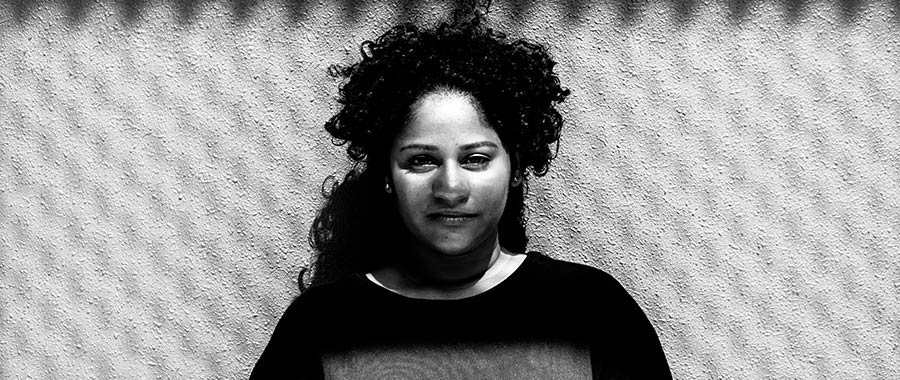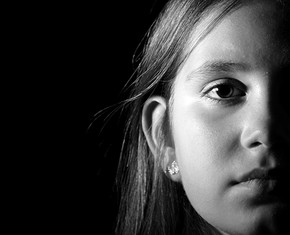The views expressed in our content reflect individual perspectives and do not represent the authoritative views of the Baha'i Faith.
The Baha’i teachings call on us all to work to bring about justice in every country of the world, and to acknowledge the dignity and equality of every person:
When perfect justice reigns in every country of the Eastern and Western World, then will the earth become a place of beauty. The dignity and equality of every servant of God will be acknowledged … – Abdu’l-Baha, Paris Talks, p. 184.
As Baha’is believe in the equality of the sexes, “every servant of God” necessarily includes the women and girls. Their dignity and equality is undermined by “period poverty” – the egregious reality that many females face when they have no access to sanitary products due to financial constraints – which afflicts millions of the world’s women and girls.
Accordingly, a growing movement for menstrual equity has begun, with the goal of removing the social stigma from the subject of menstruation and supplying women and girls with free sanitary products, especially in the developing world where the need is greatest. Many women and girls cannot actually afford the sanitary products they require, and the lack of those products threatens female health.
These necessary sanitary products, along with proper toilets, hand washing facilities, waste management, and sanitation and hygiene education, have collectively presented a challenge for societies around the world – especially in those cultures that have traditionally oppressed women and stigmatized the natural process of menstruation.
However, period poverty doesn’t only affect girls and women in the developing world. One in ten girls aged 14 to 21 in Britain, for example, cannot afford sanitary products. In Ethiopia, 51% of girls miss between one and four days of school per month because of their periods. Not only can period poverty rob a girl of her education and ultimately her agency, but it will necessarily impact society as it contributes to the exclusion of a significant portion of the world’s population:
Until womankind reaches the same degree as man, until she enjoys the same arena of activity, extraordinary attainment for humanity will not be realized; humanity cannot wing its way to heights of real attainment. – Abdu’l-Baha, The Promulgation of Universal Peace, p. 375.
The growing movement to make menstrual products freely available has now spread to a number of countries including Scotland, Canada and the U.S. An increasing number of companies now make sanitary pads available in office bathrooms, and many school districts supply girls’ bathrooms with menstrual hygiene products. Some men have even begun stocking their home bathrooms with sanitary products for female visitors. Individuals, businesses and organizations can all take these small, thoughtful acts toward creating more inclusive and just spaces for women.
The expense is minimal: one study estimated the cost at $4.67 per woman per year. We provide tissues, toilet paper, towels and soap in just about every bathroom – so why not sanitary products, too?
However, many states in the U.S. and countries across the world continue to not only charge for menstrual hygiene products, but add taxes, as well. Many women struggle with the tragic and unacceptable position of choosing between buying tampons or feeding their children. Some resort to unclean makeshift products, but that can result in infection or worse. What effect does this have on a person’s sense of dignity and ability to participate in society?
In some prison systems, female inmates receive a limited number of pads – usually not enough. In some cases, women have to show used pads to the correction officer as proof that they need more. If available for purchase, tampons are expensive, and much of the incarcerated population lives in poverty. Inequities have been institutionalized in structures that have not considered the needs of women, a growing percentage of the inmate population. These institutions fail to recognize the dignity and spiritual nature of the human soul, and in failing to provide for the basic needs of female inmates, permit their degradation.
This kind of menstrual inequity undermines the basic dignity of the individual. Any solution to the current inequality between women and men, or to address the extremes of wealth and poverty in society, requires a basic understanding that all humans deserve to be treated with dignity, regardless of gender or socioeconomic status:
O ye rich ones on earth! The poor in your midst are My trust; guard ye My trust, and be not intent only on your own ease. – Baha’u’llah, The Hidden Words, p. 41.
The Baha’i teachings urge us to safeguard the interests of oppressed and marginalized populations and to elevate them, so their material reality may reflect their spiritual reality as noble beings. What role can each of us play in upholding the standard of equity for women and girls, and in eliminating the systemic and cultural menstrual inequities that have stunted their material and spiritual progress?
To help answer that question, these resources can help:
www.weracket.com
www.daysforgirls.org
www.taxfreeperiod.com
www.shethinx.com/pages/thinx-menstrual-equity
www.periodequity.org
www.period.org
www.freeperiods.org
















Comments
Sign in or create an account
Continue with Googleor